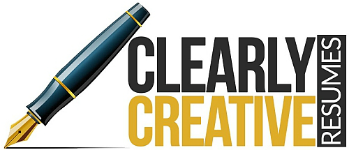What is your greatest weakness?
We recently conducted a poll that asked job candidates to share their least favorite interview question. Going by the subject of this blog, you can probably figure out what that question was. Drumroll… The results were almost unanimous. The most dreaded interview question to be asked during an interview is: What is your greatest weakness? Some candidates admit to usually being caught off guard when asked and their responses typically fall short of what is required.
Most of us naturally find it easy to speak positively about ourselves and of our attributes, without hesitation. However, when asked to talk about “stuff” that we are not good at, this becomes difficult. Imagine being asked this question in an interview where the response can literally cost you the job. Yikes, talk about pressure.
If you’re not skilled in interviewing or have not practiced your response to this question here are two things that can happen:
You become instantly nervous and you begin to wonder if the interviewer is out to get you and you convince yourself that he/she is setting you up to fail. Paranoia sets in. You freeze and you don’t answer. What’s worse, when you do answer, you give a response that is longwinded and provide an example that paints you in a negative light. The response you provide, although you were trying to be honest, is a response that makes you appear to be an employee who is a bad communicator, someone who doesn’t work well with others etc. No one will want to hire you if this is your personality or track record.
The other thing that can happen is that you might try and outwit the interviewer and respond by saying something like “I don’t really have any weaknesses that I can think of. I am a great employee. I always follow the rules, I’m always on time etc. etc.” Please don’t say this. We all have weaknesses. A response like this will definitely raise a red flag to the interviewer and you won’t get hired. It also makes you look like you are trying to “pull a fast one.”
It’s a 100% guarantee that the “weakness question” will be on your next interview. It always is. Here’s how you can embrace this question the next time you’re asked. First, it’s important that you understand what is really being asked and why. Understand that this question is being asked to test several desirable qualities; it’s not really asking you to share an actual weakness. Putting a positive spin on this, you want to be asked this question and here’s why. Employers are really asking this question because they want to get to know you and to find out more about why you would be a strong fit for the opportunity. This question is meant to assess:
Your level of self awareness - by responding and providing a specific example you acknowledge that you have an area for improvement.
Your level of dependability and maturity - you are a problem solver and a team player. You are an “adult” and you own your shortcomings. You are someone who can be relied upon to be honest and put the team first.
Your ability to learn from your mistakes and improve - you realize that you are imperfect, but you want to get better. You’re open to learning and you are coachable. This indicates that if you get hired you would be easy to train and mentor. You will also eventually be a good mentor to others where you will lead by example. Overall, you will learn and grow in the position if you are the successful candidate.
Your ability to challenge yourself and be critical of your own work - this aligns with self awareness and humility. Being able to spot your own mistakes show that you will be open to feedback from others when received and shows that you will try to not repeat your mistakes.
Behavioral interview questions such as this one are asked because they can in some way predict future behavior or reactions in similar events that can happen on the job if you were to get hired.
Now that you know what this question is asking, how do you answer? The key thing here is to not disclose an actual weakness or a trait that you have no hopes of improving. Be honest and don’t try to make up an example. This will get you nowhere and skilled interviewers can usually see through these types of responses. However, confidently provide a example that shows you in a positive light and has a positive outcome. Your example should also be one where you have already started to make efforts to correct this weakness and improve.
Tip: The next time you’re asked “What is your greatest weakness,” be excited. Choose an example that relates to one of the 4 areas above and remember to use the STAR method when practicing your response. Practice your response enough to where you are confident and eager to share your experience.
